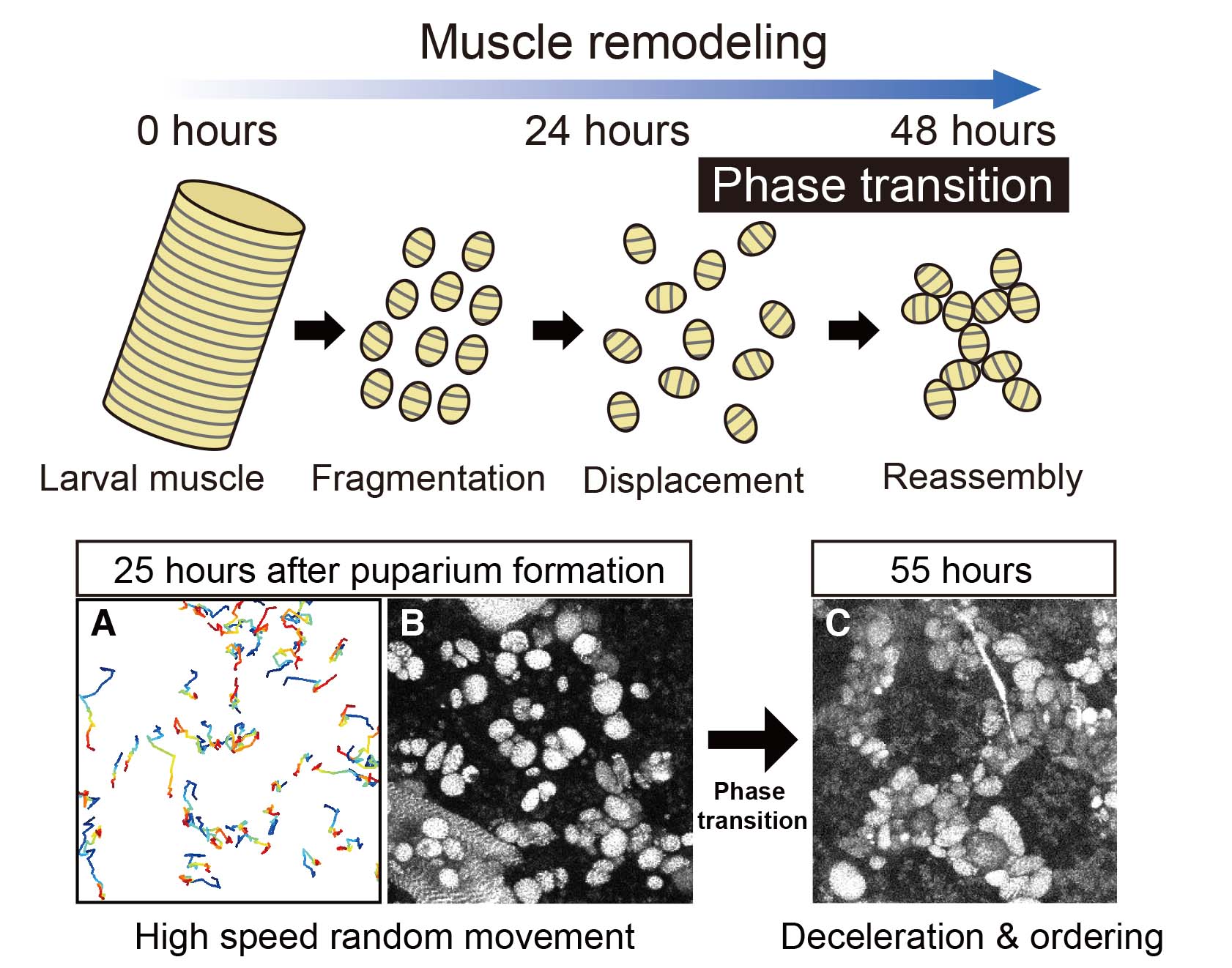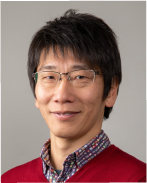Organization
Group A02
Muscle cell swarm intelligence: Understanding the phase-transition dynamics of muscle remodeling during insect metamorphosis
Research Outline
Group A02 aims to understand the process of tissue formation from the perspective of swarm intelligence emerging from cells. Using muscle remodeling during metamorphosis in Drosophila as a model system, we focus on a novel biological phenomenon in which old muscle fibers are disassembled and then reassembled to form new muscle fibers. These disassembled muscle fragments migrate at varying speeds and do not migrate uniformly. This heterogeneous population, as a whole, gradually declines in migratory activity and unknowingly creates an orderly pattern. However, it is unclear how these phase-transitional dynamics are produced and how population heterogeneity contributes to the formation of order patterns. Therefore, the aim of this study is to elucidate the principle that the heterogeneity inherent in the population produces robust and flexible swarm intelligence. Using Drosophila genetic technology, we will consider a constructive approach that combines tissue-specific genetic manipulation, local physical perturbation with optical control techniques, and mathematical models to reveal the molecular mechanism, local rules that individuals follow, and their adaptability to changes in the environment.

Group A02 members
Project Leader
Daiki Umetsu (Graduate School of Science, Osaka University)

Organisms come in various shapes; however, there should be common principles in the creation of different shapes. It remains largely unknown how cellular and molecular behavior that are repeatedly used in various morphogenetic processes are implemented and how these mechanisms are utilized to generate different shapes. Using Drosophila as a material, I will combine genetic and molecular biology as well as mathematical approaches to reveal the properties common to cells and characteristic molecular properties that work in apparently different morphogenetic processes.
Educational and Professional Background Daiki Umetsu, Ph.D.
- 1996-2000
- Department of Molecular Biology, Faculty of Science, Saitama University, Saitama B.S. awarded March 2000.
- 2000-2002
- Graduate program in Biological Sciences, Graduate School of Science, the University of Tokyo, Tokyo M.S. awarded March 2002.
- 2002-2006
- Graduate program in Biophysics and Biochemistry, Graduate School of Science, the University of Tokyo, Tokyo Ph.D. awarded March 2006.
- 2006–2007
- Postdoctoral fellow, Institute of Molecular Cell Biology, the University of Tokyo, Tokyo, Japan
- 2007–2012
- Postdoctoral fellow, Max Planck Institute of Molecular Cell Biology and Genetics, Dresden, Germany
- 2012-2014
- Postdoctoral fellow, Institute of Genetics, Dresden University of Technology, Dresden, Germany
- 2014-2016
- Research scientist, RIKEN Center for Developmental Biology, Kobe
- 2016-2022
- Assistant professor, Graduate school of Life Sciences, Tohoku University
- 2023-current
- Lecturer, Graduate School of Science, Osaka University

